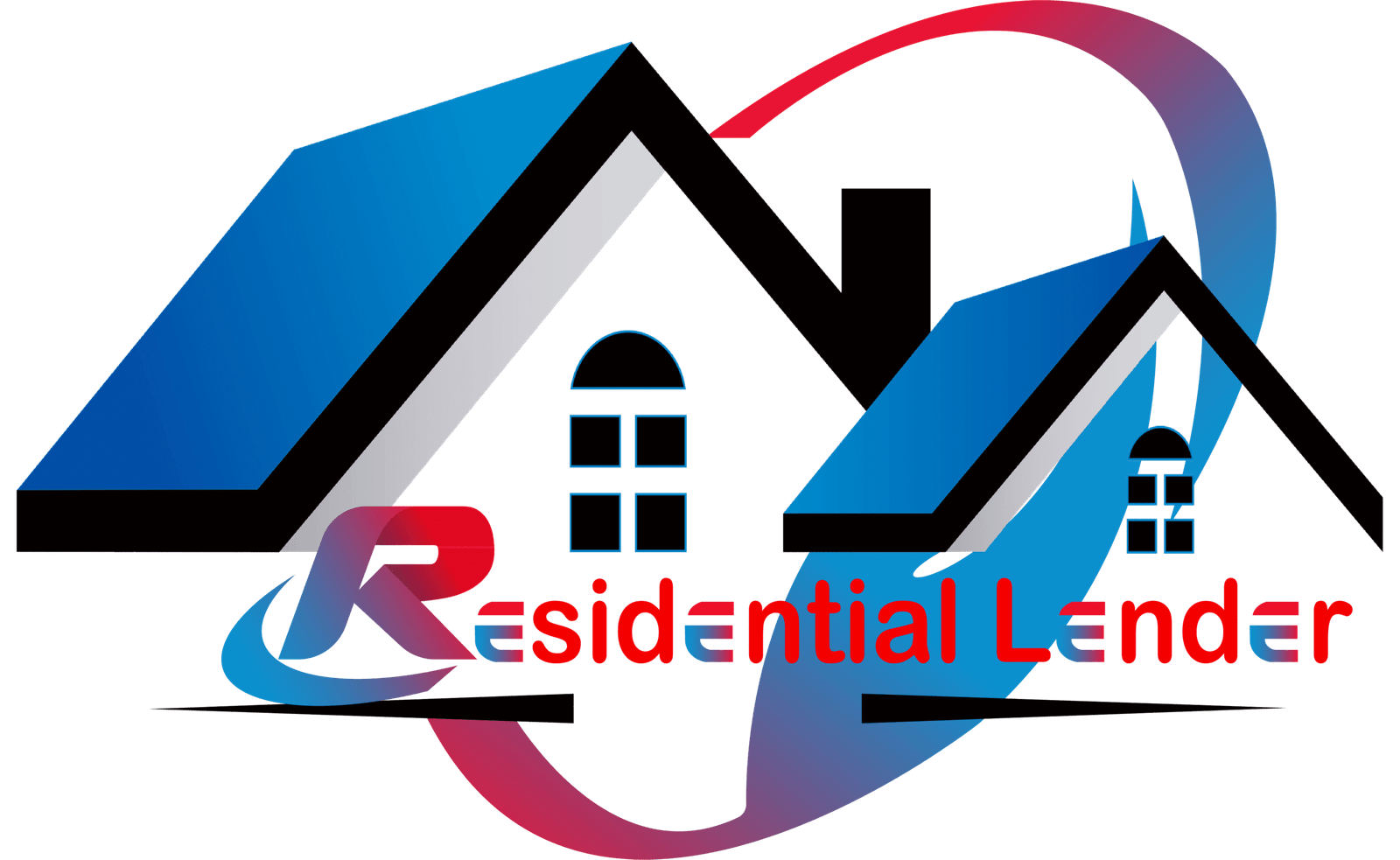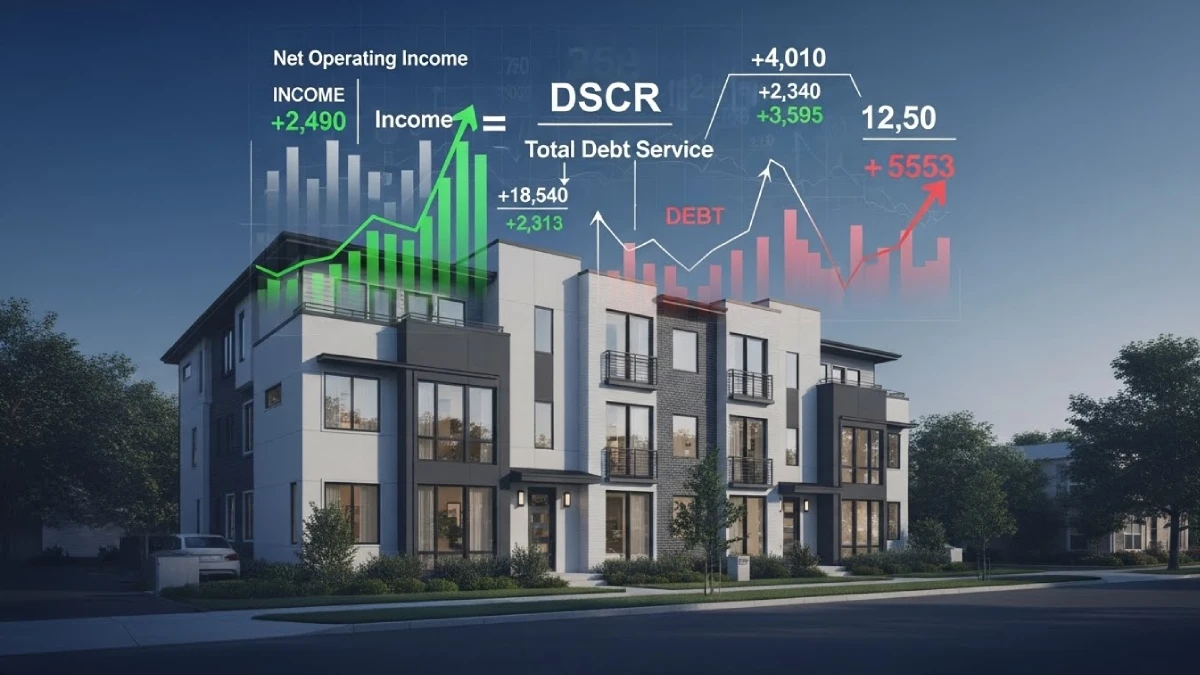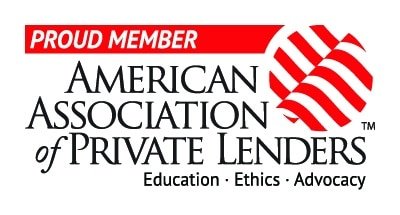The real estate market is constantly evolving, presenting both opportunities and challenges for buyers. Traditional lending methods often fail to meet the needs of investors due to their strict requirements and lengthy approval processes. This means that investors miss out on great investment sites.
These private money lenders for real estate take money from people or specialized groups and lend it to real estate buyers. They make it easy and flexible to get money. They don’t just look at the borrower’s credit score; they also consider the potential value and growth of the business property. Different types of buyers can take part in this method because it is based on assets.
A private money loan is easy to obtain. It offers flexible terms that can be tailored to suit the needs of various property types and borrowers. This faster process gives buyers an edge over their rivals because it allows them to purchase desirable homes and complete deals that need to be finalized quickly before others do.
Private Money vs. Traditional Lending: A Clear Distinction for Real Estate Investors
Real estate investors must understand the key differences between private money loans and traditional bank loans to make informed decisions about financing. Both provide cash, but their methods of operation and the types of real estate deals they are best suited for are very different.
Key Differences: Why Private Money Stands Out
There are significant differences between private money and traditional finance in several important ways:
- Approval Process: Private money lenders determine whether to lend money to an investor based on the property’s value and potential for appreciation. They often focus on the property’s after-repair value (ARV) and expected cash flow. Traditional banks, on the other hand, closely scrutinize the borrower’s credit score, proof of income, and debt-to-income (DTI) ratio. Due to this difference, private money can be a good choice for investors even if they have complicated finances or bad credit.
- Funding Speed: One of the key advantages of private money loans is their speed and efficiency. Funds can usually be sent within days, which allows buyers to move quickly on real estate deals that need to be completed promptly. Traditional loans, on the other hand, have a lengthy approval process that can last weeks or even months. This means they aren’t suitable for situations where you need money immediately.
- Loan Terms: Private loans are generally easier to obtain, and their terms are more flexible. Typically, you have 6 to 24 months to repay them. Unlike traditional loans, which usually have terms of 15 or 30 years, this one has significantly different terms. Because private loan terms are flexible, they can be used to create custom solutions that fit the needs of specific projects and exit plans.
- Paperwork: When applying for private money loans, the process is usually streamlined and requires less paperwork than when applying to a traditional bank, which typically involves a more extensive application process and stringent checks. Getting funds much faster is made possible by lowering the number of bureaucratic hurdles.
- Interest Rates: Private money loans typically have higher interest rates than regular mortgages because they can be provided more quickly, with greater flexibility, and because the risk is perceived as higher with asset-based lending. Mortgage rates for conventional loans can be anywhere from 3% to 7%. Rates for private money loans, on the other hand, typically range from 7% to 15%.
- Collateral: For private money loans, the business property itself serves as collateral, and lenders assess its value and the borrower’s ability to repay the loan. Traditional loans also need collateral, but the borrower’s general financial health and creditworthiness are often taken into account as well.
- Regulatory Oversight: Compared to conventional banks and financial institutions, which are heavily regulated, private money lending is typically run with less political oversight. Private loans are easier and more flexible because they don’t have to follow as many rules.
Addressing Common Pain Points of Traditional Financing
People who own real estate and are frustrated with the slow and challenging process of obtaining loans from traditional banks often turn to private money loans as an alternative. They eliminate the need for strict proof of personal income, which helps people who are self-employed or have multiple sources of revenue.
Private lenders also allow buyers to quickly expand their holdings without being limited by standard debt-to-income ratios. They also have quick closing times, which enable buyers to capitalize on opportunities in highly competitive real estate markets.
When you get a private money loan, the lender bases the loan on your assets. This makes them a good option for investors that traditional banks might turn down because of their credit history, unusual sources of income, or lack of papers. In turn, this allows more people to borrow money and provides real estate owners with additional opportunities to raise capital for property purchases.
| Feature | Private Money Lending | Traditional Bank Loans |
| Approval Process | Based on property value and potential | Based on the borrower’s credit score, income, and DTI |
| Loan Terms | Flexible, negotiable, often short-term (6-24 months) | Fixed, standardized, often long-term (15-30 years) |
| Funding Speed | Fast (days) | Slow (weeks/months) |
| Paperwork | Minimal documentation | Extensive documentation |
| Interest Rates | Higher (typically 7%-15%) | Lower (typically 3%-7%) |
| Collateral Focus | Primarily, the property itself | Borrower’s financial health and property |
| Regulatory Oversight | Limited | Highly regulated |
| Borrower Credit Score Focus | Less Critical (Asset-based) | Highly Critical |
The 6 Essential Types of Private Money Lenders for Real Estate Financing
What people usually mean by “private money” is a wide range of different types of loans, not just hard money loans. Real estate owners seeking custom financing options should be aware of this range of private capital. Private money lenders can also finance niche and complex properties that traditional banks typically avoid. This is a significant advantage for investors seeking one-of-a-kind or potentially higher-yield real estate deals.
A. Hard Money Lenders: The Speed Merchants of Real Estate
Hard money lenders specialize in providing short-term loans secured by real estate. These loans are focused on assets and have a short repayment time. For real estate deals that require rapid capitalization and have a clear, short-term exit strategy, these loans are most suitable.
These situations are extraordinary for hard money loans:
- Fix-and-Flip Projects: Investors purchase run-down homes, renovate them, and then sell them quickly for a profit. This is the most common use case. Because hard money funding is fast, investors can soon purchase buildings and begin operations immediately.
- Real Estate Auctions: When multiple bids are received, receiving the money quickly is crucial. Hard money loans give you the cash you need to compete and quickly close deals.
- Urgent Needs & Short-Term Gaps: Hard money is the choice when you need cash quickly, like in days instead of weeks, to close a real estate deal that needs to be done right away.
Hard money loans offer numerous benefits, including quick approval and funding (often within days), as well as flexible terms that can be tailored to meet the specific needs of each real estate deal. Additionally, hard money lenders are often willing to finance properties that traditional banks might not want to touch because they are considered too risky or unusual, such as those in poor condition. However, there are some things you should be aware of regarding these perks.
Because they are more expensive and only last for a short time, hard money loans typically have higher interest rates, usually ranging from 8% to 15% per year. The loan term is also significantly shorter, typically ranging from 6 to 24 months, and payments generally consist only of interest. The capital amount is due in full at the end of the loan term.
B. DSCR Loan Lenders: Financing Based on Property Cash Flow
Debt Service Coverage Ratio (DSCR) loans are a type of non-qualified mortgage (non-QM) financing specifically designed for real estate investors. The primary distinguishing feature of DSCR loans is that the expected cash flow from the investment property, or Net Operating Income (NOI), is used to determine eligibility, rather than an individual’s income or debt-to-income (DTI) ratio. Because they focus on a property’s financial performance, they are a good choice for many real estate owners.
Some important perks for investors of DSCR loans are:
- No Personal Income Verification: This is a significant benefit, especially for self-employed individuals, businesses, or those with complex financial situations, as it circumvents the strict income verification requirements imposed by traditional lenders.
- Portfolio Expansion: Many lenders don’t impose limits on the number of properties that can be funded with DSCR loans, which can help real estate portfolios proliferate. This makes it easier for investors to increase the size of their assets.
- Broad Property Eligibility: You can use these loans for a lot of different types of rental properties that bring in money, like single-family houses, multifamily units, and even condos, condotels, and manufactured homes that don’t need to be backed by a mortgage.
- Foreign National Friendly: Many DSCR loan programs are designed to accommodate foreigners and individuals with an ITIN (Individual Taxpayer Identification Number). This allows buyers from around the world to enter the U.S. real estate market.
DSCR loans are ideal for purchasing rental properties, holding them for an extended period, and refinancing existing rental properties, including cash-out refinances to utilize equity for future investments.
There are several key points to consider about DSCR loans, despite their numerous benefits. Most of the time, they require larger down payments, typically 20% to 30% of the home’s value. Additionally, interest rates on DSCs are slightly higher than those on conventional loans. They are expected to remain between 7.5% and 8.2% in 2025, representing a higher risk for lenders who rely solely on the property’s income. Lenders also usually demand a minimum DSCR ratio, which is generally around 1.25. This means that the property’s income must be enough to cover its debts.
| Feature | Details |
| Typical DSCR Ratio | 1.25 or higher (ideal) |
| Minimum Down Payment | 20-30% |
| Interest Rate Range | 7.5-8.2% (projected 2025) |
| Typical Loan Term | 30-year fixed, 5/1 ARM, 40-year fixed, Interest-Only options |
| Minimum Credit Score | 620-660 FICO (higher for better rates) |
| Eligible Property Types | Single-family homes, multifamily (up to 4 units), warrantable & non-warrantable condos, condotels, manufactured homes, commercial |
| Income Verification | No personal income verification (based on property NOI) |
| DTI Calculation | Not required |
C. Individual Private Investors: Personalized Funding Relationships
Individual private investors are a separate type of private money lenders. They are typically experienced real estate investors or wealthy individuals who lend their money directly to borrowers. People usually find these lenders through networking in local real estate business groups, online, or by consulting trusted real estate agents who provide recommendations.
One of the advantages of working with private individuals as investors is that the terms are typically very flexible, as they are based on personal relationships and can be tailored to fit the specifics of each deal. They also charge less than big private money lenders, and the approval process is more straightforward because the agreement and borrower are looked at more personally. Finding and carefully screening individual investors, on the other hand, can take more time, and the terms they offer can vary significantly based on the relationship and negotiation. Building trust and demonstrating that you can be relied upon as a borrower is crucial for securing favorable terms and expanded financing options.
D. Private Lending Funds & REITs: Pooled Capital for Scale
A more organized way to give private money is through Real Estate Investment Trusts (REITs) and private lending funds. These structured investment companies take money from many investors and lend it out as private money loans. They provide a structured way for both borrowers and passive investors to get money.
For borrowers, working with private lending funds can be beneficial because they can offer larger loans and more organized, standardized procedures, which can make the terms more stable compared to working directly with individual lenders. These funds are usually managed by professionals, which gives them a level of sophistication and dependability that real estate investors who want to finance their investment property portfolios on a bigger scale like. This plan offers investors who invest in these funds a way to diversify their risk and generate steady, passive income from real estate-backed debt, often with attractive returns.
E. Bridge Loan Specialists: Bridging the Gap in Real Estate Transactions
A bridge loan is a type of short-term financing designed to “bridge the gap” between purchasing a new home and selling an existing one, or until more long-term funding can be secured. Real estate owners who need cash quickly to take advantage of a time-sensitive deal will find these loans very useful.
Most of the time, bridge loans are used for
- Interim Financing: If you need to make a purchase quickly and standard financing would take too long, consider this option.
- Property Transitions: When a real estate owner needs immediate funds to close on a new investment property before the one they already own is sold or refinanced. In this way, they can avoid problems and strengthen their deal.
- Fix-and-Flip Projects: Bridge loans are often used in conjunction with hard money, but they can also serve as the initial round of funding for fix-and-flip projects, particularly for speedy flips, or as a stepping stone to a more specialized building loan.
One crucial aspect of bridge loans is that they typically last for a short period, usually between 3 and 12 months. Because they are given quickly and only for a short time, they typically have higher interest rates than standard loans. To obtain a bridge loan, you must have a clear plan for repaying it. Lenders need to know that the loan will be repaid within the loan’s short term.
F. Private Construction Loan Lenders: Building Your Investment Vision
Private construction loan lenders are experts at providing financing for new construction or undertaking major repairs on an investment property. These loans are designed to meet the specific financial needs of individuals building or heavily remodeling homes.
A significant aspect of private construction loans is that the funds are typically disbursed in stages, or “draws,” based on the project’s progress and the number of inspections completed. This slow release of capital makes sure that the money is used wisely and in line with project goals. Private choices are often preferable to traditional bank construction loans because banks may be hesitant to lend due to the risks and difficulties associated with building a project.
Private building loan lenders, on the other hand, are more likely to take on these risks because they focus on the project’s overall viability in today’s real estate markets and its after-repair value (ARV). They offer more flexible terms and faster approvals, which are crucial for maintaining building schedules and avoiding costly delays.
Choosing the Right Private Money Lenders for Real Estate Investment
Finding the right private money lender is one of the most important things you can do to make sure your real estate business succeeds. Many things need to be carefully thought through, not just the interest rate itself.
Factors to Consider
- Loan Flexibility: It’s essential to ensure that the lender’s loan terms are suitable for the real estate deal and your intended use. This includes examining payment plans, loan terms, and the availability of interest-only payment options, all of which can significantly impact cash flow during the investment period. One crucial aspect of private money banking is the ability to adjust loan terms to suit the project’s specific needs.
- Costs & Fees: Private money loans typically have higher interest rates, but buyers should be aware of all the additional costs and fees associated with them. Origination fees, which generally are between 1% and 5% of the loan amount, points, which are interest paid in advance, service fees, application fees, and various closing costs are some examples. Investors should always request a clear, written list of all fees and compare offers from different lenders to find the most affordable way to borrow money.
- Local Market Conditions: The current state of the local market has a direct impact on the performance of an investment property. It is essential to ensure that the private money lender’s loan terms align with the local economy and the real estate market dynamics in the area where the property is located. A banker who is well-versed in the local market can offer better and more relevant terms.
- Exit Strategy: Because many private money loans are only for a short time, it is not only advisable but also necessary to have a clear and workable exit plan. This plan should outline how the private money loan will be repaid, such as by selling the remodeled home, refinancing it into a long-term loan, or through another precise repayment method. Lenders typically require a clear repayment plan before they agree to the loan. This lowers their risk. You can’t say enough good things about a strong exit strategy. It provides a clear plan for repaying the loan, alleviates any potential financial stress, and ensures the real estate deal proceeds smoothly.
Building a Strong Lender Relationship
Building a strong connection with a private money lender can pay off in significant ways in the long run, beyond the transactional aspects. To achieve this, you must be honest, communicate clearly, and consistently demonstrate that you can be relied upon as a borrower. A good track record can help you secure better terms on future real estate deals and ensure you have access to flexible financing options. Working with an experienced real estate agent or financial expert can also help you get in touch with a network of reliable private lenders, which can speed up the process and increase your chances of getting funding.
Maximizing Your Real Estate Investment Potential
For a real estate business to be successful, private money must be matched with clear investment objectives. Private money lenders come in various forms, each offering distinct loan options to help investors achieve optimal returns and accelerate portfolio growth. Real estate owners can utilize different types of private money loans carefully, with plans tailored explicitly for investment properties.
Fix-and-flip deals are ideal for securing hard money loans to purchase and renovate rundown houses.
DSCR loans, on the other hand, help individuals build a portfolio of rental properties that generate income.
Bridge loans provide short-term financing, enabling homeowners to purchase new homes while maintaining their existing ones in good condition.
Private money loans are flexible, allowing buyers to invest their funds in a wide range of properties, including rental homes with one or more units, condotels, and other unique properties. Real estate investors need to have a wide range of hobbies.
Businesses that understand the differences between various types of private money loans and select those that meet their specific needs will be able to grow more successfully and sustain their growth for a longer period. Clever use of these financing options can help investors capitalize on market opportunities, close deals more quickly, and build a more stable and diverse portfolio of rental homes.
Partnering for Success: Your Residential Lender Advantage
It can be hard to understand private money lending, but working with a professional financial consulting company can help you understand it better and get better results. A skilled home lender can offer personalized financial assistance, backed by 30 years of experience in loan approvals and an extensive network of 200 private lenders and investors.
The business offers a variety of loan types, including bridge loans, hard money loans, DSCR loans, USDA B&I loans, SBA loans, FHA commercial property investment loans, building loans, term loans, no-doc loans, lite-doc loans, and state income loans.
The business offers both exclusive and non-exclusive referral programs for agents seeking to purchase investment property in the United States. You should find out more about how private money lenders can help you change the way you run your real estate business. You should consult a financial expert with extensive knowledge and experience.
Conclusion
Real estate owners can get a variety of loans from private money lenders. These include hard money loans for properties in poor condition and fix-and-flip projects, as well as cash-flow-focused DSCR loans for expanding rental property portfolios. These lenders offer faster approval times and more flexible terms to fit a wide range of investment plans and property types. When seeking an investor, it’s essential to consider the flexibility of the loan, its associated costs, how well it aligns with the local market, and your repayment plan.
For long-term success and to secure capital in the future, it’s essential to build strong, honest relationships with lenders. Real estate investors can achieve their long-term business goals and maximize their opportunities by strategically utilizing various types of private money loans.
FAQs
Are DSCR loans available for first-time investors?
Yes, first-time investors can qualify for DSCR loans, provided the property meets the DSCR requirements and other eligibility criteria are met. The focus is on the property’s income potential, not necessarily the borrower’s prior experience.
What should I do if problems arise during a private money transaction?
While building strong relationships with your lender is key, maintaining open and timely communication is crucial if issues arise. Transparency about your financial situation and any challenges can help you find solutions and preserve the relationship for future real estate deals.
What alternatives to private money exist for funding real estate projects?
Beyond private money, real estate investors often consider traditional bank loans, which typically offer lower interest rates but come with stricter qualification criteria and longer approval processes. Other options include conventional mortgages, government-backed loans (typically for owner-occupied properties), or seller financing.
What is the typical loan-to-value (LTV) for hard money loans?
For hard money loans, the loan-to-value (LTV) ratios generally range from 60% to 75% of the property’s value. This means you’ll typically need a down payment of 25% to 40% to secure the financing.
Can private money loans be used for primary residences or second homes?
Generally, no. Most private money loans, especially those for real estate investment, are considered commercial or business purpose loans. This means the asset must be an investment property and cannot be used as the owner’s primary residence or second home.








